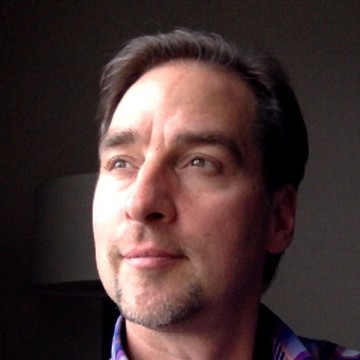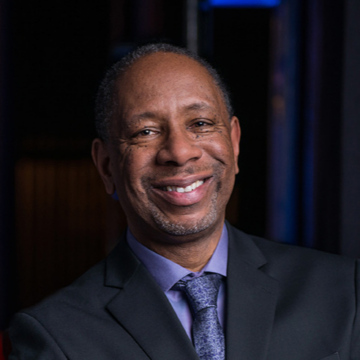Posted in Power, Equity, Inclusion
July 21, 2016
The tagline of the Black Lives Matter movement is “Free from violence. Free from oppression. Free to be our full selves. Free to love. Freedom Now.” Their rallying cry is a powerful quote from Assata Shakur. “It is our duty to fight for our freedom. It is our duty to win. We must love each other and support each other. We have nothing to lose but our chains.”
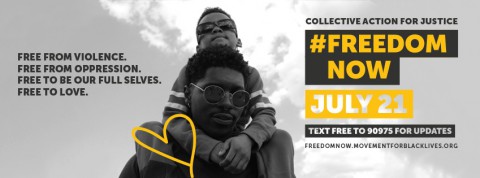
The past few weeks have reminded me that loving and supporting each other requires us not only to fight but also to mourn together. There are opportunities around us every single day. The recent shootings of police, alongside the seemingly endless list of black and brown civilians shot by police, seem to have awakened the nation in a new way. That is good, as long as we can “stay woke” long enough to do something meaningful. Still, I can’t help but wonder what hushed and gentle conversations we’d be having on television and in communities, workplaces, and houses of worship without the deaths of the police officers. Isn’t the almost daily murder of black and brown people enough to cause somber reflection? Aren’t the calls for action coming from grieving families, activists, celebrities, athletes, and everyday folks enough to make and sustain meaningful change?
Read More
July 12, 2016
This weekend I attended CommonBound 2016, the bi-annual conference of the New Economy Coalition (NEC), “…a [160-member] network of organizations imagining and building a future where people, communities, and ecosystems thrive. Together, we are creating deep change in our economy and politics—placing power in the hands of people and uprooting legacies of harm—so that a fundamentally new system can take root.”
As one might imagine given the mission, the conference was attended by people working on a wide range of projects from public engagement, participatory budgeting, and environmental sustainability to cooperatives, reparations, community land trusts, fossil fuel divestment and more. The 900 attendees were all in some way engaged in doing the very important work of organizing, shifting culture, developing alternative institutions and creative solutions, writing, resisting, and fundraising. All towards a goal of a society that is more just, more democratic, and more sustainable. NEC itself is fast becoming a network of networks engaging groups in the cooperative movement, movement for black lives, labor movement, student divestment network, environmental movement and more. Held in Buffalo, NY, the conference had all the makings of a pivotal moment in movement history, where a true intersectional approach to changing society for the better could be nurtured. The opportunities for significant connections and collaborations to develop were endless.
Read More
June 16, 2016
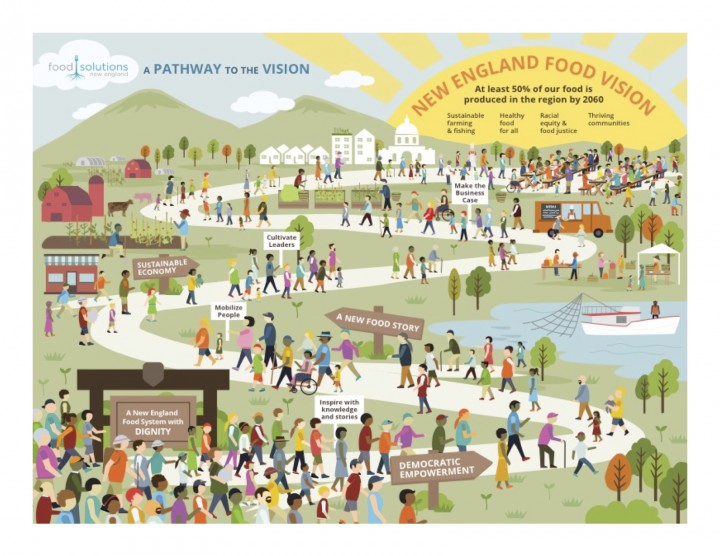 Last week over 190 delegates attended the 6th annual New England Food Summit in Bridgeport, Connecticut. This marked the completion of a cycle through all six New England states and an important moment in the evolution of Food Solutions New England, a network of networks that has been in development with IISC’s support around a bold Food Vision that sees the region becoming more connected and self-sufficient while supporting a more equitable, eco-logical and vibrant food economy.
Last week over 190 delegates attended the 6th annual New England Food Summit in Bridgeport, Connecticut. This marked the completion of a cycle through all six New England states and an important moment in the evolution of Food Solutions New England, a network of networks that has been in development with IISC’s support around a bold Food Vision that sees the region becoming more connected and self-sufficient while supporting a more equitable, eco-logical and vibrant food economy.
Leading up to the Summit, the FSNE Network Team engaged in a year-long system mapping and analysis process that yielded a few key systemic health indicators associated with the Vision as well as a set of leverage areas for framing and advancing regional strategies in the direction of the Vision:
- Engaging and mobilizing people for action
- Cultivating and connecting leadership
- Making the business case for a more robust, equitable and eco-logical regional food system
- Weaving diverse knowledge and inspiration into a new food narrative
Read More
May 26, 2016
Tonight, Cynthia Parker will present “Race Talk” at an intercultural dialogue co-hosted by Fire, Grace Chapel’s young adult ministry. Parker explores racism through key moments of personal and professional insight.
Thursday, May 26, 2016, 7:00 PM – 9:00 PM
Grace Chapel: 59 WORTHEN RD., LEXINGTON, MA US 02421
Courtyard Room, Main Building
“There are many useful guidelines for productive race talk,” Parker says, and many practical tips are included in the talk. Yet even with best practices, some moments of race talk do harm or feel unresolved. Parker shares her personal tips for connecting with her faith, and her faith in humanity, to continue moving forward with love.
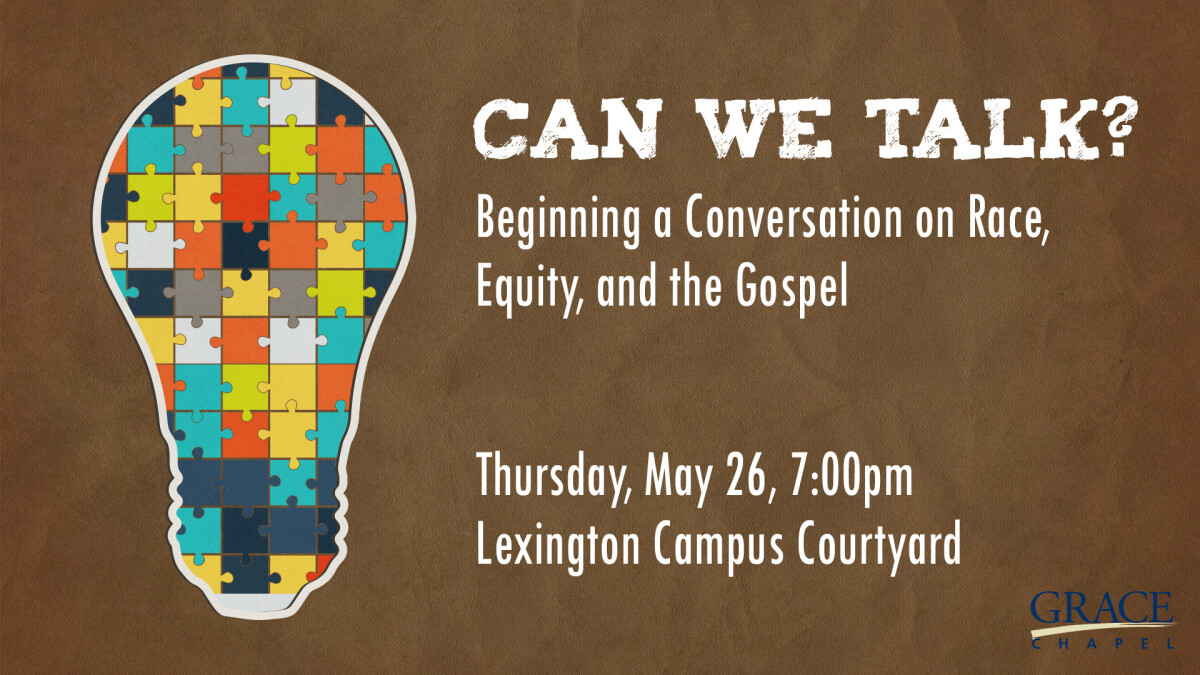
Read More
May 10, 2016

This year for the second time, IISC partnered with Food Solutions New England in designing and facilitating the 21 Day Racial Equity Habit Building Challenge as an extension of both organizations’ commitment to realizing racial justice.
Last year, this networked remix of an exercise created by Dr. Eddie Moore, Jr. and Debby Irving, was offered as a way of spreading commitment to learning about, talking about and taking action to solve racial injustices in the food and other related systems. This year, additional tools and virtual platforms were added to create a more robust environment for learning. This included:
- an even richer resource page with readings, videos and organizational links,
- a blogroll of daily prompts with links to resources and room for participants to offer written reflections,
- a series of original blog posts on the FSNE website committed to relevant topics and themes
- a Twitter hashtag (check out #FSNEEquityChallenge)
- a group Facebook page
Read More
April 26, 2016
Recently our staff and board came together for an annual meeting. Part of the day was spent exploring racial equity projects happening across the organization. That was the first time we tried a prototype of the Cut-out Edition of #the4thbox. It opened up conversations on everything from analyzing “the isms” to creative ideas to create the liberated, equitable world we want.
We hope that you find this helpful, as you support people to have these conversations and imagine a better world.
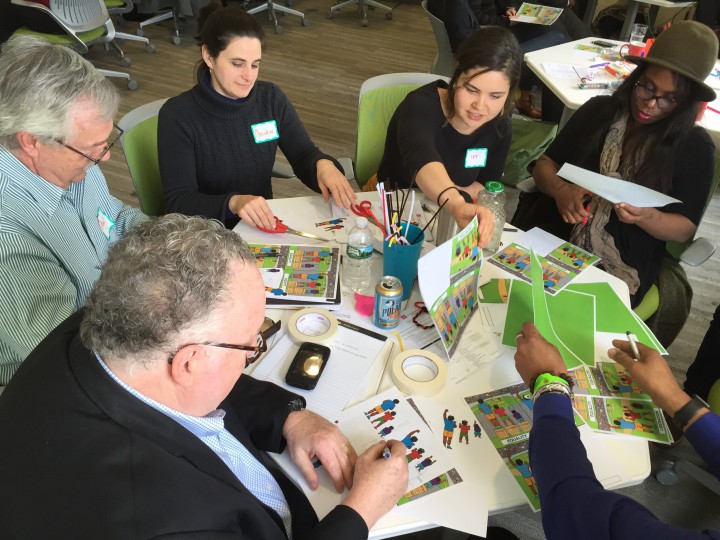
Read More
April 26, 2016
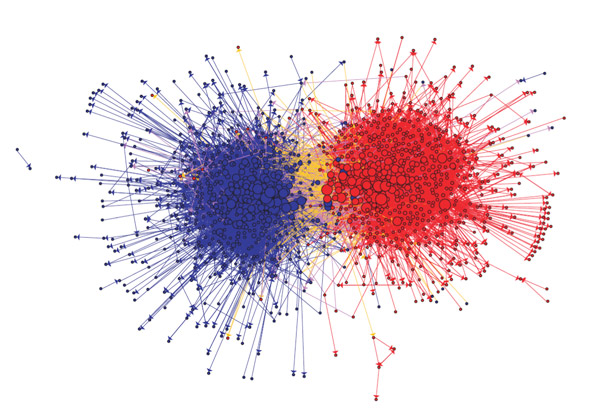 In many rooms where networks are the topic of conversation, a typical question of interest is “Who is connected to whom?” This is an important question, often the focus of social network analysis (SNA), and can lead to important and strategic information about things like hubs, gatekeepers, strong and weak ties, etc. And this is not the full extent of useful inquiry when thinking about social change.
In many rooms where networks are the topic of conversation, a typical question of interest is “Who is connected to whom?” This is an important question, often the focus of social network analysis (SNA), and can lead to important and strategic information about things like hubs, gatekeepers, strong and weak ties, etc. And this is not the full extent of useful inquiry when thinking about social change.
Another important question is, “What is flowing?” That is, what kinds of value are flowing through these connections with respect to information, natural capital, money, cultural expression, etc. This is the focus of value network analysis (VNA) and is important to help understand the overall vitality and health of a network or system. Read More
April 12, 2016
Start a Conversation
Remixers and meme-makers, we have a tool for you. We are pleased to be partnered with Center for Story-based Strategy in the release of an illustration kit: the4thbox.com
Imagery is a huge factor in framing the terms of a conversation. This kit is meant to inspire imagery that provokes new interactions between people. We believe these interactions will help open up imagination towards the liberated, equitable society we want.
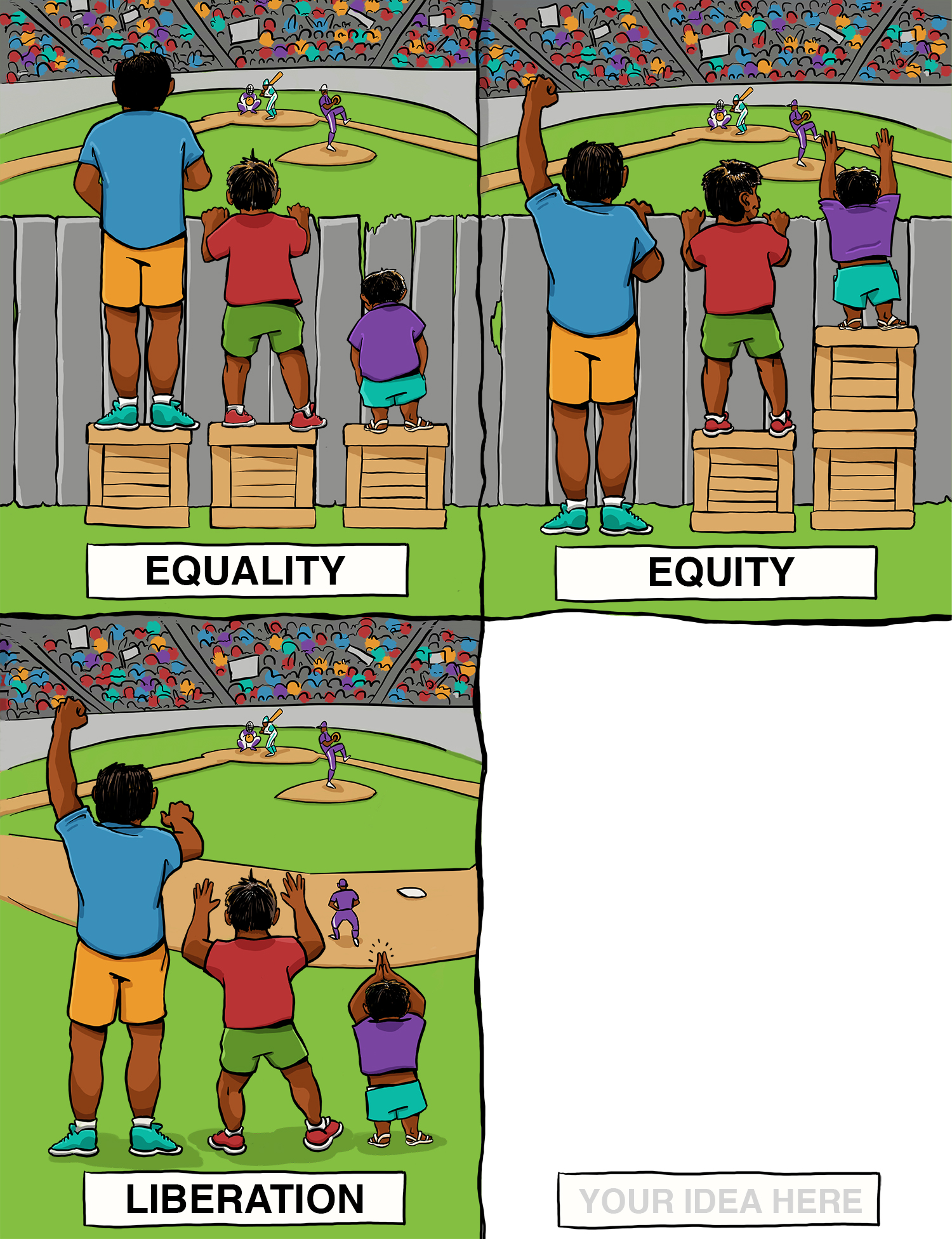
Artwork by Angus Maguire: http://beclouded.net/
Read More
April 10, 2016
On April 10, 2016, Food Solutions New England (FSNE) launches the 21-Day Racial Equity Habit Building Challenge with more than 600 participants who want to normalize the conversation about race and racism. IISC is a co-sponsor because we agree that skill building and conversations are key for collective capacity to identify and address the different manifestations of racism, whether internalized, interpersonal, institutional, or structural.
Do you want to grow, learn, and support racial equity? You can join here on the FSNE website.
You can also connect to this project on Facebook or by using the hashtag #FSNEEquityChallenge on Twitter.
IISC Senior Associate Curtis Ogden has been helping to weave FSNE’s network for over five years. He is a member of this year’s Racial Equity Habit Building team, which will include blogging about racial equity and promoting the conversation on social media. Additionally, IISC’s communications team, Lawrence Barriner II and Danielle Coates-Connor, have been supporting this year’s Racial Equity Habit Building Challenge with communications and engagement strategy.
=
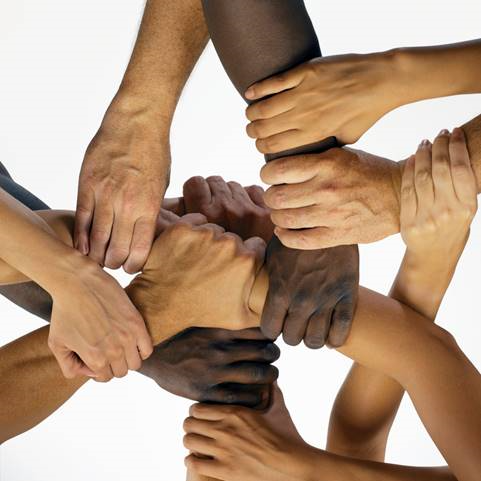
April 6, 2016
“If you don’t know the kind of person I am
and I don’t know the kind of person you are
a pattern that others made may prevail in the world
and following the wrong god home we may miss our star.”
– William Stafford, From “A Ritual to Read to Each Another”

A couple of weeks ago I was a participant in a SSIR webinar on network leadership. I spent my air time talking about Food Solutions New England as an example of a social change network that has been leveraging authenticity, generosity and trust to address issues of racial inequity in the food system. In telling the story, I realized that much of it amounts to a gradual process of shedding layers and “making the invisible visible.” Specifically, it has been about making visible power and privilege, connection and disconnection, tacit knowledge and diverse ways of knowing, and complex system dynamics. As a result, many in the network sense we are now in a better position to build from what we have in common, and that it is more likely that the vision of a vibrant, equitable and eco-logical food system will be realized. Read More
March 17, 2016

There is a difference between being a network by default and being one by intention. Sometimes that can be a big difference. I encounter a fair number of networks that are networks in name and in standing, at least in that they are connected entities. But that is pretty much it. Experience shows there are any number of different ways to structure a network, and name it for that matter.
And what I find is most important is the underlying intention to maximize network effects, including: speeding the spread of resources, ensuring resources reach everyone in the network, ensuring everyone has the opportunity to share resources, growing the overall pie of resources, strengthening adaptive capacity and collective intelligence, growing abundance and equity in many different ways.
What this boils down to is a set of network ethics, which I would summarize (certainly incompletely, and to which I invite additions and alterations) in the following way: Read More
February 25, 2016

Ikeda Center Podcast Episode 5: Ceasar McDowell – On the Evolving Nature of Community
Here is Part 3 of The Ikeda Center Podcast’s interview series with Ceasar McDowell.
In this final segment of our three part interview, Dr. Ceasar McDowell introduces some early experiences that have inspired his work in community development. He also discusses the evolution of how we organize ourselves as human beings in community. He comments that while in the past we were born into specific communities or chose communities that were local and familiar, now “all of that has changed.” He adds that “we often find ourselves in places where we can’t then build an integrated community, so we look at how do we then take care of that other part of ourselves, which we can say is spiritual, relational, whatever it may be…For some people, they start to do it around work, or they do it around their habits, or they do it around church…All of that still keeps us separate, because now you’re holding this multiplicity of the places where you’re finding your identity and yourself and your connection, and it ends up being fragmented in some ways.” Dr. McDowell continues by exploring this new space that we find ourselves in, one of transition and change.
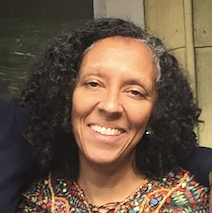

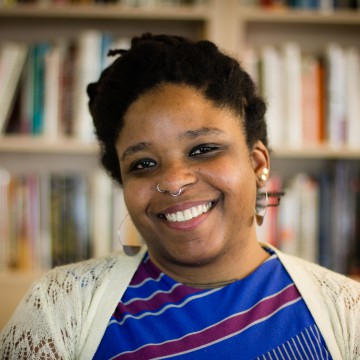
 Last week over 190 delegates attended the 6th annual
Last week over 190 delegates attended the 6th annual 

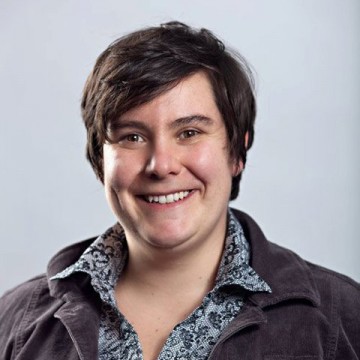
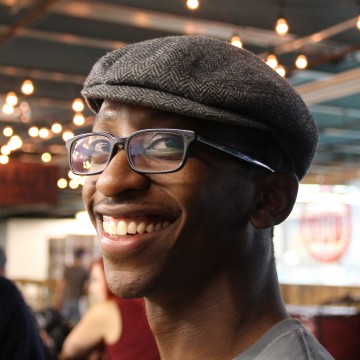

 In many rooms where networks are the topic of conversation, a typical question of interest is “Who is connected to whom?” This is an important question, often the focus of
In many rooms where networks are the topic of conversation, a typical question of interest is “Who is connected to whom?” This is an important question, often the focus of 
